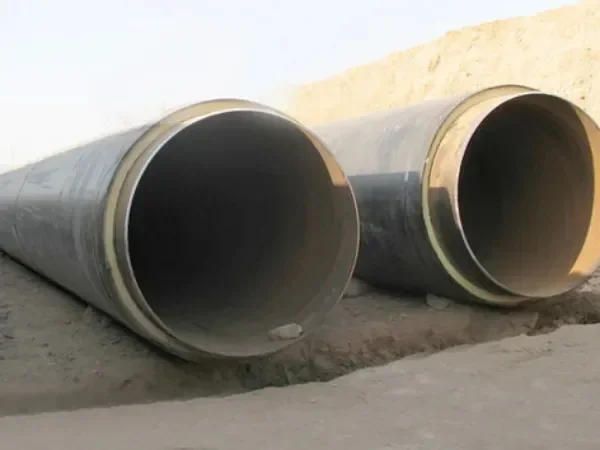The difference between insulated pipe and anticorrosive pipe
Insulated pipes and anti-corrosion pipes are two common pipe materials in the industrial field. Their functions and uses are different, so you need to pay attention to their differences when using them.

Insulation pipe is a material used for pipe insulation, which can effectively reduce the heat loss inside the pipe and improve the thermal efficiency of the pipe. The insulation pipe is usually composed of an inner pipe, an insulation layer, and an outer pipe. The inner pipe is used to transport the medium, the insulation layer is used for heat preservation, and the outer pipe is used to protect the insulation layer. The insulation layer of the insulation pipe is usually made of polyurethane, polystyrene, and other materials, which have good insulation performance and durability and are suitable for pipelines transporting high-temperature and low-temperature media.
Anti-corrosion pipe is a material used for pipeline anti-corrosion, which can effectively prevent corrosion and damage inside the pipeline and prolong the service life of the pipeline. The anti-corrosion pipe is usually composed of an inner pipe, an anti-corrosion layer, and an outer layer pipe. The inner layer pipe is used to transport the medium, the anti-corrosion layer is used for anti-corrosion, and the outer layer pipe is used to protect the anti-corrosion layer. The anti-corrosion layer of the anti-corrosion pipe is usually made of epoxy resin, polyurethane, and other materials, which have good anti-corrosion performance and durability and is suitable for pipelines that transport corrosive media.
The difference between insulation pipes and anti-corrosion pipes lies in their different functions and uses. Insulation pipes are mainly used for pipeline insulation to prevent heat loss and improve the thermal efficiency of pipelines; anti-corrosion pipes are mainly used for pipeline anticorrosion to prevent corrosion and damage inside the pipeline and prolong the service life of the pipeline. In addition, the material and structure of the insulation pipe and the anti-corrosion pipe are also different. The insulation layer of the insulation pipe is usually made of polyurethane, polystyrene, and other materials, while the anti-corrosion layer of the anti-corrosion pipe is usually made of epoxy resin, polyurethane, and other materials.
Both insulation pipes and anti-corrosion pipes play an important role in the use of pipelines, but their functions and characteristics are different. Insulation pipes are mainly used for heat preservation and heat insulation of pipelines to prevent energy loss and medium temperature fluctuations; anti-corrosion pipes are mainly used for anti-corrosion of pipelines to prolong the service life of pipelines. Therefore, when selecting pipeline materials, it is necessary to select the appropriate pipeline material according to the specific use environment and requirements to ensure the normal operation and safe use of the pipeline.
Production Process and Advantages of Insulated Pipes
Quality test method for insulated piping
Connection mode of steel pipe with anticorrosive coating
How to choose the appropriate anticorrosive coating pipeline manufacturer?
Types and characteristics of anticorrosive coating pipeline
How to Distinguish the Quality of Anti-corrosion Coating Pipes
Classification and characteristics of anticorrosive coatings
The importance of anticorrosive coating to pipeline construction
Method for testing the quality of anti-corrosion coatings on steel pipes






